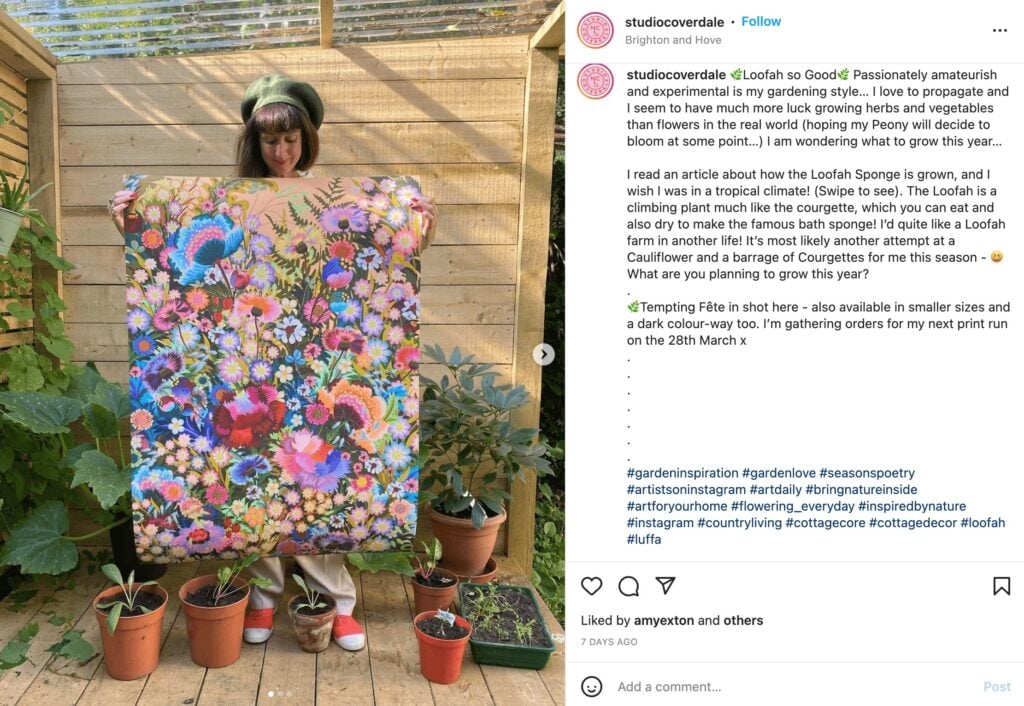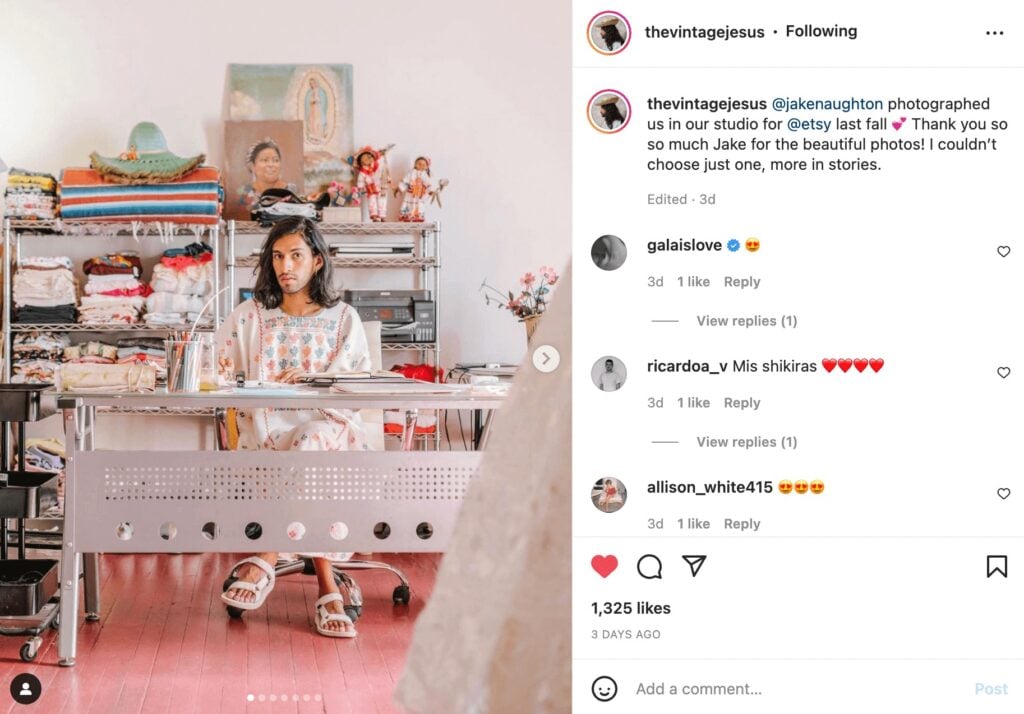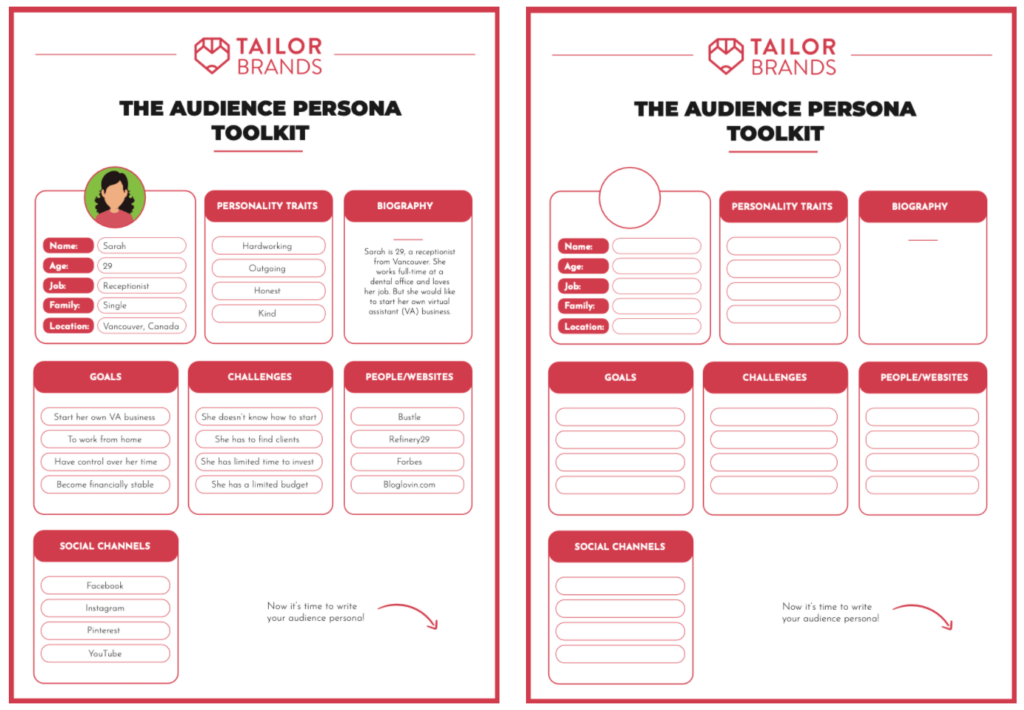
We all have that one friend on social media (or in-person). You know who I’m talking about—that one person who self-promotes to the point of exhaustion. And while you’re their friend and respect their effort, a part of you just wants to hit the mute button.
I totally get you. I remember classmates from high school reaching out to me years later—the best part was we never even spoke in school.
And there they were, asking me how my life was while dropping (not-so-subtle) hints about their new business venture. And their social media profile was all about their new business.
I couldn’t get away! We’ve all encountered someone like this.
Now, you’re nervous about promoting yourself to your network, worried about what other people think of you. While you know someone like this, you don’t want to be like them. This fear of looking like them has placed you in a tricky spot.
Listen, while your friend may be shameless with promoting their business, they’re putting themselves out there. So, you don’t need to hide. You can promote your network of friends, family, and acquaintances in a non-stalkerish and tasteful way.

When it comes to creating ads and promoting your business to strangers, it’s no biggie. But it’s a different story when promoting your business to your network. Why are people nervous about promoting their business to their network?
Firstly, many new business owners are scared of failure. And it’s completely understandable. You invest your time and energy in a business you’re passionate about, and you want it to succeed. But you’re not alone with this. Statista reports around 35.2% of U.S. entrepreneurs experience fear of failure.
Solution: Starting a business is a big life step – of course, you will have feelings of fear. You’re human. To help you overcome the fear of failure, try the following:
The fear of rejection can be so overwhelming that many people will avoid chasing their dreams.
It’s your new business, your baby, and you want it to receive a warm welcome. I get it. So, of course, there’s this fear of rejection.
While you want to avoid rejection, here’s the thing; rejection is a part of the business world. That’s how we learn and grow. So, instead of running away from it, run to it.
Solution: The only way to overcome the fear of rejection is to get uncomfortable. Go for it. Acknowledge your fear of rejection and then put your business out there – that’s the only way you can overcome your fear of rejection in the business world.
You have friends, family, co-workers, and acquaintances you’ve met throughout the years in your network.
There’s a part in all of us that doesn’t want to lose people in our lives because of our choices (whether they’re good or bad). When we see someone we know unfollow us, it doesn’t feel good.
It’s the need for acceptance that we all struggle with, and it’s completely normal. But people have different reasons for choosing not to support your business. Maybe they don’t like the product/service, they’re jealous – the reasons are endless.
Solution: Of course, you’re going to lose people – not everyone will be into your business and that’s okay. You don’t need everyone to like your business.
But, that doesn’t mean you shouldn’t self-reflect. It’s important to look at your actions.
Are you messaging people a little too frequently about your business? Advertising on people’s personal posts?
While there will be people who aren’t interested in your business, some business owners overstep their boundaries and lose the support that way.

You’re a small business, so exposure is key. No one is going to know about your business unless you tell them.
But promoting your business to your network will achieve more than just exposure.
Here’s the thing, you don’t know whether people in your network are a part of your target audience (the group of people who are highly likely to be customers of your business).
By promoting your business to your network, you’ll find out. If those in your network are in your target audience, not only will you gather more data about them, but there’s a high chance they’ll convert into sales.
And if they’re not your target audience, you’ll learn who you shouldn’t be targeting. Either way, promoting your business to your network will help you learn about your target audience.
You’re a new (and small) business. And while you’re probably thinking to yourself, I’m no Zara or Nike, you need to remember, they also started from the same spot as you.
And I can assure you that the owners of Zara or Nike turned to their networks to help create brand trust (the confidence customers have in your business) when they were starting their business.
People are always more likely to check out a business if a friend or family member recommends it. You’re creating your audience, and you can use your network to help you develop brand trust.
To build a community around your business, you need people to trust your brand.
Since your network has a personal connection with you, they’re more likely to support your small business.
Once you have people in your community, it creates a snowball effect as more people will gain interest and engage with your brand (especially if they see their friends and family supporting it).

You want your small business to be taken seriously and welcomed with open arms by your network.
Here are some things you can do to promote your business without looking a) like a stalker or b) annoying.
While you want to promote your business to your network, you don’t want to mix business with pleasure (when was that ever a good idea!). When you mix the two, that’s when people get annoyed.
So open a business account for the social media platforms you’re planning on using.
On your social media business account, post and advertise your business. Doing so will also help build brand trust and social proof.
Yes, you can tell your network on your personal account that you have a business account, you don’t need to be completely silent on your personal account for big announcements. But, in general, keep your personal account for personal use.
Invite your network to support your business page; that way, those who want to support your business will receive regular updates from you and you can gain insights on user behavior.
Having a Facebook business page is a great way to separate your business and personal account.
With a business page, you can post text, video, and images to your followers, invite your friends to like your page, create ads, and receive analytics about your audience.
To learn how to create a Facebook page for your business, read this.
With Instagram, you have two options:
1. Turn your personal account into a business account
2. Create a new account solely for your business
What option you choose will depend on the type of business you have.
For example, if you’re a content creator or coach, you may want to use your personal account as a business account because you are your business.
However, if you have an online shop or physical business, I recommend having a separate Instagram account for your business.
Regardless of what option you choose, a business account will provide you with analytics, allow you to create ads, schedule posts, and share links into stories.
To learn how to create a business account on Instagram, read this.
There’s nothing worse than dealing with a cheesy salesperson. We all run away from them.
People don’t want to feel that you’re just being nice to them because you want to sell them something. They want to feel a genuine connection with your business.
So, when posting on social media, create posts that are genuine. Regardless of your brand language, whether it’s formal or casual (you’ll need to decide that based on your audience), approach your audience with honesty.
Because the truth is, your audience can tell right away when you’re being real with them and when you’re not.

Here’s a great example of a genuine social media post. Studio Cloverdale creates textiles and prints. Of course, we can see this photo is focused on selling the print.
However, the artist goes into detail talking about what inspired her to create this piece of art and gives some interesting information about the flowers in her art. Yes, she’s selling it, but she’s doing it in a way that doesn’t push you away.
Writing posts to promote your business is great, but try using other forms of media like video or images?
Show your network behind the scenes of your operations or a new product you’re launching. Words are powerful, but so are visuals.

The Vintage Jesus, a artisanal and vintage shop, posts photos to give a “behind-the-scenes” look at their business. This is a great way to engage with your audience, while showing them the process of how your products or services come to life.
If you want to attract potential customers from your network, it’ll help if you know your audience.
If you’re struggling to find out who your audience is, I recommend doing some audience research.
Audience research will give you insight into your ideal audience and help you create the foundation for your audience persona.
With a clear audience persona, you’ll be able to align your marketing message to your audience.
Use our audience persona template below to help you create your ideal audience.

Download this PDF template and have it available whenever you need.
Your network can give you the support you need to build brand trust and brand awareness. But, let’s get real, even the people in your network need an incentive to support your business.
To encourage your network to support your business, whether it’s sharing your business page, liking posts, or shopping, give them a compelling offer to do so.
Go a step above the average. For example, offer a ‘Friends and Family’ discount of 25% off if they like or share your business page on their social media.

You know your audience, which means you know what they like (and want). Herfirst100k focuses on helping women become financially literate.
Founder Tori Dunlap, knows her audience is young women, looking to become financially independent and make more money. She also knows they like shopping and traveling – this is information she discovered through audience research.
So, her giveaway speaks specifically to the needs and wants of her audience. Tori knows her audience isn’t interested in a new toolkit, for example.
They want an authentic Italian leather travel bag. And that’s what she’s going to give them if they complete the rules of the giveaway, which includes liking the photo, following the pages of herself and bag brand, and tagging a friend in the comment section.
Her giveaway helps create brand awareness, helping her to expand her audience.
You’re not the only small business in your network. So why not join forces with other businesses in your network to create brand awareness and build your community.
By collaborating with another small business, you’ll advertise your business to their network and possibly gain potential customers.
Check out the small businesses within your network and see how you two can collaborate. It could be creating a video together, doing a product/service giveaway, or simply promoting each other’s businesses on social media. It’ll be a win-win for everyone.

For example, designer y.illustrations collaborated with another artist while also combining it with a compelling offer to customers. She gave a shoutout to the other designer, and to increase the following to both social media accounts, the giveaway requires users to like both pages.
It’s a very smart way to not only connect with other small businesses but also collect new potential customers.
I can’t tell you a step-by-step formula when it comes to promoting your business to your network. Every network is different and you’ll need to discover your audience.
It’ll take time. Read the data and see what’s working for your audience.
Do they like reading text? Watching videos? Do they respond positively to daily posts? This is something you’ll need to test out for your business and adjust it to your audience.
You have a network of friends, family, and acquaintances to promote your business. This is great! Take advantage of this chance to gain brand awareness and build a community.
Starting a small business isn’t easy, but don’t be scared to get your name out there and get your business seen.
This portion of our website is for informational purposes only. Tailor Brands is not a law firm, and none of the information on this website constitutes or is intended to convey legal advice. All statements, opinions, recommendations, and conclusions are solely the expression of the author and provided on an as-is basis. Accordingly, Tailor Brands is not responsible for the information and/or its accuracy or completeness. It also does not indicate any affiliation between Tailor Brands and any other brands, services or logos.
Products
Resources
©2025 Copyright Tailor Brands